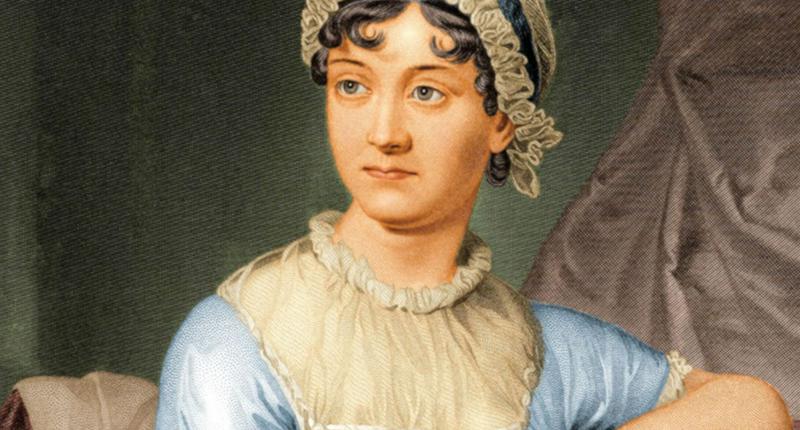The Sensibility of Jane Austen
By | March 23, 2019

One of the most well-known female authors of the nineteenth century, Jane Austen was born in Steventon, Hampshire, England, on December 16, 1775. Her parents, Reverend George Austen and Cassandra Leigh, had eight children of which Jane was the second youngest. The reverend was an Oxford scholar and kept an extensive library. He and his wife encouraged learning and creativity with their children. The family often wrote and performed plays and charades. Cassandra was Jane’s only sister and the sibling to whom she was the closest. The two of them eventually went off to boarding school; however, financial difficulties caused their education to be discontinued.
Jane Austen was not discouraged, however, and began writing in her notebooks around 1787. These notebooks now referred to as Jane’s Juvenalia, contain various plays, verses, short novels, and other prose which parodied the existing literary forms. She spent much of her early adulthood helping to run the family, but it is believed by some that she was briefly betrothed to Harris Bigg-Wither, having agreed to marry him only to change her mind the next morning. Other stories claim she fell in love with someone who died shortly afterward. There is no concrete proof to support either claim; however, her novels suggest she had some experience with love and loss.

In 1795, she began writing Elinor and Marianne, which would later become Sense and Sensibility, her first published novel. The original version of Pride and Prejudice was written from 1796-97 under the title First Impressions. Her father tried to have it published in 1797 but it was rejected. From 1798-99, she wrote Susan which would later be published posthumously as Northanger Abbey. In 1801, Jane and her family moved to Bath. This was the first of many moves as her father passed away in 1805 and the women of the family were forced to take temporary lodgings or stay with family members until 1809 when Jane’s brother Edward provided them with a cottage on his estate.

Settled once again, Jane turned her attention to publishing her previously written novels while also writing several new ones. Using a pseudonym, she published Sense and Sensibility, Pride and Prejudice, Mansfield Park, and Emma from 1811-16. Her brother Henry served as a liaison between her and the publishers. Her works were well-received, praised for their “domestic realism.” During this time, she also took a second look at her manuscript for Northanger Abbey, which she was still calling Susan. It would be published after her death along with Persuasion.

In 1816, Jane began experiencing symptoms of an illness which medical professionals now believe to have been Addison’s disease. She continued to write as much as possible, even beginning a new novel in January of 1817. It was also published after her death as Sanditon. Eventually, her condition deteriorated so much that she was forced to stop writing. She died on July 18, 1817, in Winchester, Hampshire, England, and was buried in Winchester Cathedral.

After her death, Jane’s brother Henry revealed her authorship and she was at last given credit for her work. Today, she is considered one of the most famous Britons of all time. She is credited with the creation of the “comedy of manners.” Her works have seen several movie and television adaptations and she even has her own fan club, known as the Janeites.

